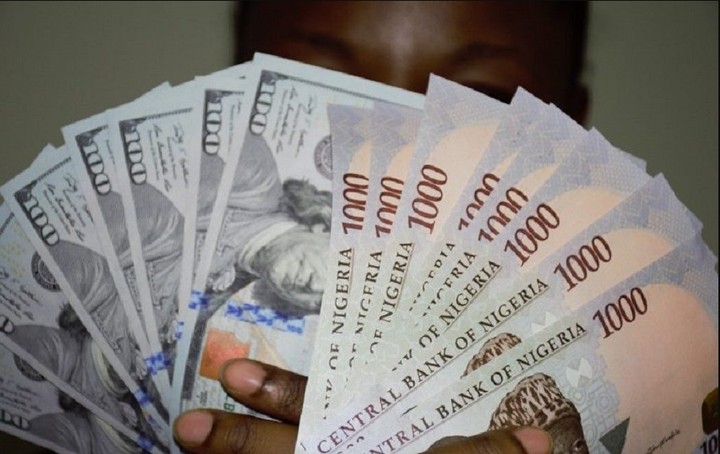The Naira continued its slide in the parallel market, closing at N1,630/$1 on Friday, May 30, 2025, according to data compiled by IgbereTV. This marks a notable depreciation from its position earlier in the week, where it had maintained relative stability at N1,620/$1.

The local currency also lost ground against the British pound, exchanging at N2,190/£1 on Friday, compared to N2,170/£1 on Thursday and N2,165/£1 on Wednesday. The steady decline underscores ongoing pressure on the Naira amid persistent foreign exchange challenges.
By contrast, the previous week saw a modest appreciation, with the Naira improving to N1,620/$1 on Thursday from N1,625/$1 on Wednesday, and sustaining that gain through Tuesday. The reversal in trend this week has raised fresh concerns among analysts about forex market stability and the effectiveness of recent monetary interventions.
Market watchers attribute the renewed depreciation to increased demand for foreign currency and low dollar liquidity in the informal market, even as the Central Bank continues efforts to unify exchange rates and stabilize the Naira.
While the official exchange rate remains lower than parallel market levels, the widening gap between the two has once again highlighted the complexities of Nigeria’s foreign exchange landscape and the urgent need for long-term structural reforms.
It had earlier closed at N1,627/$1 on Monday, according to market sources in Lagos.
Against other major foreign currencies, the Naira showed mixed performance. It gained against the pound sterling, appreciating to N2,135/£1 on Thursday, up from N2,155/£1 on Wednesday and N2,145/£1 on Tuesday. The week had opened at N2,142/£1. However, against the euro, the Naira declined to N1,835/€1 on Thursday, from N1,820/€1 on both Monday and Wednesday, though it slightly improved from Tuesday’s N1,825/€1.
In the official market, the Naira showed a mixed trend. It closed at N1,585.5/$1 on Friday, a modest appreciation from N1,587/$1 on Thursday.
Central Bank of Nigeria (CBN) data indicates that the currency closed at N1,592/$1 on Wednesday, slightly down from N1,590/$1 on Tuesday, and opened the week at N1,583/$1 on Monday.
Adding further pressure on the Naira, the Organization of the Petroleum Exporting Countries and its allies (OPEC+), the world’s largest oil producers, announced a planned increase of 411,000 barrels per day in production for July 2025.
In an official statement on Saturday, OPEC+ reaffirmed: “In view of a steady global economic outlook and current healthy market fundamentals, as reflected in the low oil inventories, and in accordance with the decision agreed upon on December 5, 2024, to start a gradual and flexible return of the 2.2 million barrels per day voluntary adjustments starting from April 1, 2025, the eight participating countries will implement a production adjustment of 411 thousand barrels per day in July 2025 from the June 2025 required production level.”
According to Nairametrics Research, this increase could suppress global oil prices if demand growth underperforms or inventories remain stable—posing further risk to Nigeria’s foreign exchange earnings and increasing pressure on the already volatile naira.







